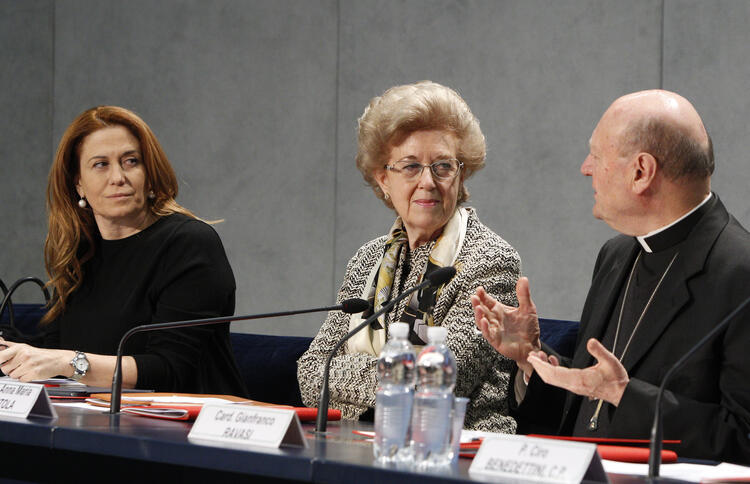Violence against women, cultural pressures regarding women’s physical appearance, attitudes that subjugate women or that ignore male-female differences and the growing alienation of women from the church in some parts of the world are themes the Pontifical Council for Culture is set to explore during its plenary assembly on Feb. 4 to 7 at the Vatican. The assembly’s statement, “Women’s Cultures: Equality and Difference,” looked at the continuing quest to find balance in promoting women’s equality while valuing the differences between women and men; the concrete and symbolic aspects of women’s potential for motherhood; cultural attitudes toward women’s bodies; and women and religion, including questions about their participation in church decision-making. In the section on women and the church, the document described “multifaceted discomfort” with images of women that are no longer relevant and with a Christian community that seems to value their input even less than the world of business and commerce does. Many women, it said, “have reached places of prestige within society and the workplace but have no corresponding decisional role nor responsibility within ecclesial communities.”
Challenges for Women In Church and Society
Show Comments ()
1
Comments are automatically closed two weeks after an article's initial publication. See our comments policy for more.
Luis Gutierrez
10 years 6 months ago
The church is "one, holy, catholic, and apostolic" but not necessarily "male-apostolic." Time to ordain some nuns!
The latest from america
Perhaps it is the hard-won wisdom that comes with age, but the Catholic rituals and practices I once scorned are the same rituals and practices that now usher me into God's presence, time and time again.
"Only through patient and inclusive dialogue" can "a just and lasting conflict resolution can be achieved" in the long-running conflict between Israelis and Palestinians, said the Holy See's permanent observer to the United Nations.
The ”Bad Guys” films ask, how do we determine who the “bad guys” are? And if you’re marked as “bad” from the start, can you ever make good?
In these dark times, surrounded by death and destruction in Gaza, we hear the command in the first reading, “Choose life.” What are the ways we can do this in a world that seems to have gone mad?








